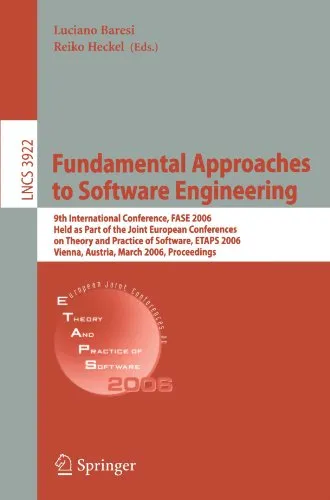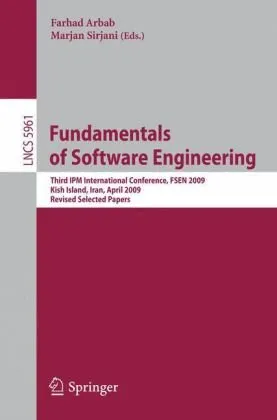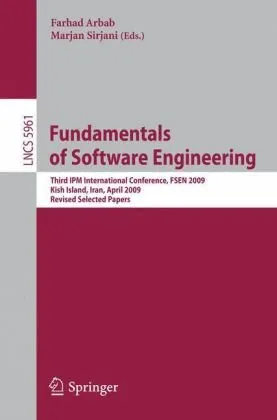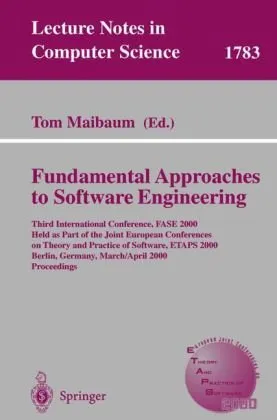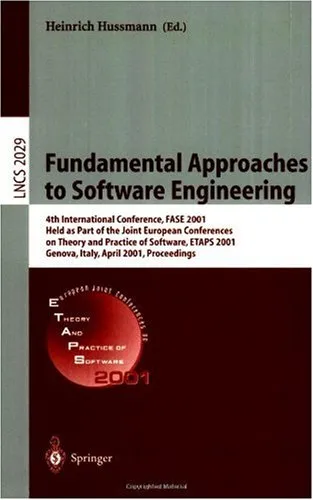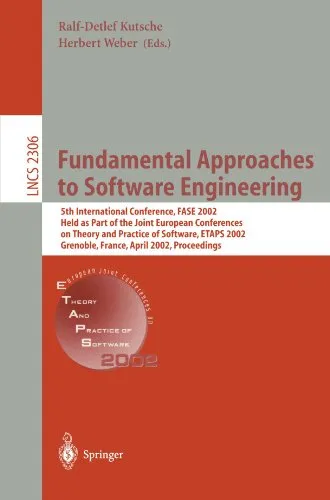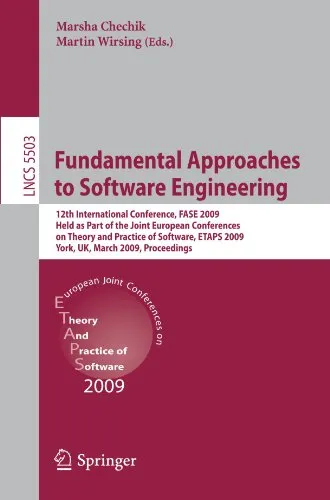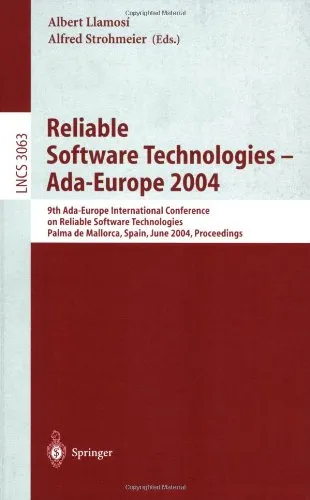Fundamental Approaches to Software Engineering: 9th International Conference, FASE 2006, Held as Part of the Joint European Conferences on Theory and Practice of Software, ETAPS 2006, Vienna, Austria, March 27-28, 2006. Proceedings
4.0
Reviews from our users

You Can Ask your questions from this book's AI after Login
Each download or ask from book AI costs 2 points. To earn more free points, please visit the Points Guide Page and complete some valuable actions.Related Refrences:
Introduction to the Book
"Fundamental Approaches to Software Engineering: 9th International Conference, FASE 2006, Held as Part of the Joint European Conferences on Theory and Practice of Software, ETAPS 2006, Vienna, Austria, March 27-28, 2006. Proceedings" is a comprehensive compilation of the latest research, findings, and advancements within the domain of software engineering. This book reflects the vibrant discussions, rigorous methodologies, and substantial representation of various formal and practical approaches to software development presented during the renowned conference.
Edited collaboratively by Luciano Baresi and Reiko Heckel, with contributions from Francisco Curbera, this volume serves as an indispensable resource for researchers, practitioners, and students who wish to grasp the foundational elements and cutting-edge insights into modern software engineering techniques. Spanning a wide range of topics that include model-driven development, formal methods, verification, and software evolution, it distills the most important findings from this pivotal conference into a structured, readable, and actionable format.
Organized as part of the European Joint Conferences on Theory and Practice of Software (ETAPS), the FASE 2006 proceedings focus on bridging the gap between theoretical advances and practical implementations. It highlights not only the importance of rigorous academic research but also its application in solving real-world challenges faced by software engineers.
Detailed Summary of the Book
As a core component of ETAPS 2006, the main objective of this book is to showcase significant progress in the methodologies and tools necessary for the efficient development and maintenance of high-quality software. The proceedings contain a selection of peer-reviewed papers from researchers worldwide, divided into thematic groups covering a broad spectrum of software engineering disciplines.
Specific topics include model-driven software development, which explores transformational modeling techniques aimed at bridging the gap from abstraction to executable code. Formal verification methods take center stage as a way to ensure the correctness of systems before deployment, emphasizing safety-critical solutions. Additionally, the book delves into software evolution and versioning, as well as dynamic and adaptive software systems that can accommodate changes in their environments.
By balancing theoretical rigor with tangible practices, the book presents both novel frameworks and case studies illustrating the success of applying these techniques to real projects. Each paper is rigorously evaluated for not only its intellectual integrity but also its relevance in addressing pressing industry and academic concerns.
Key Takeaways
- Comprehensive insights into contemporary software engineering challenges and solutions.
- Emphasis on bridging the gap between theoretical foundations and practical applications.
- A strong focus on formal methods for verification and validation of software systems.
- Discussions on adaptable and dynamic software systems in response to evolving requirements.
- Case studies and real-world applications showcasing the effectiveness of proposed methodologies.
- Collaboration between industry practitioners and academic researchers to solve practical software engineering problems.
Famous Quotes from the Book
"The power of software engineering lies in its ability to integrate theory, tools, and practice seamlessly, addressing the growing complexities of modern systems."
"Formal methods are not only a matter of ensuring correctness but are instrumental in designing systems that evolve with predictability."
Why This Book Matters
Software engineering is at the core of technological innovation, which makes it essential to understand and apply the fundamental principles that guide the design, development, and maintenance of reliable software systems. This book encapsulates the discussions and innovations from FASE 2006, serving as both a historical record and a contemporary guide for improving software engineering practices.
What sets this book apart is its ability to amalgamate theoretical advancements with practical considerations. By capturing the state of the art in 2006, it allows researchers and practitioners to track the evolution of software methodologies and understand their relevance in today’s technology landscape. Furthermore, the focus on formal methodologies as well as real-world applications ensures that it remains an invaluable reference for resolving modern software challenges.
Whether you are an academic, a software engineer, or someone with a curiosity about building better software systems, this book provides the knowledge and inspiration needed to approach software engineering with both depth and foresight.
Free Direct Download
You Can Download this book after Login
Accessing books through legal platforms and public libraries not only supports the rights of authors and publishers but also contributes to the sustainability of reading culture. Before downloading, please take a moment to consider these options.
Find this book on other platforms:
WorldCat helps you find books in libraries worldwide.
See ratings, reviews, and discussions on Goodreads.
Find and buy rare or used books on AbeBooks.
1232
بازدید4.0
امتیاز0
نظر98%
رضایتReviews:
4.0
Based on 0 users review
Questions & Answers
Ask questions about this book or help others by answering
No questions yet. Be the first to ask!
